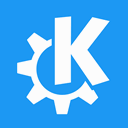Discover the Best Xfce Alternatives for Your Desktop Environment
Xfce, known for its speed and lightweight nature, is a popular choice for many Unix and Unix-like systems. It offers a highly customizable desktop environment with various panels, launchers, and plugins. However, users often seek Xfce alternatives for different reasons – perhaps they desire a fresh look, a more feature-rich experience, or an even lighter footprint. This guide explores the top alternatives that cater to a variety of preferences.
Top Xfce Alternatives
Whether you're looking for a complete overhaul or just a subtle change, these desktop environments offer compelling reasons to switch from Xfce. Let's dive into some of the most popular and effective alternatives available today.

KDE Plasma
KDE Plasma is a powerful and highly customizable open-source desktop environment available on Linux, BSD, and postmarketOS. It stands out as an excellent Xfce alternative for users who prioritize extensive customization options, including blurry transparency, and a rich ecosystem of plugins and extensions, all while maintaining an optimized and fast-booting experience.

GNOME
GNOME 3 offers an elegant and user-friendly open-source desktop experience for Linux and BSD. As an Xfce alternative, GNOME focuses on simplicity and efficiency, providing an optimal performance and being highly extensible through its wide range of extensions, putting users in control of their workflow.

MATE
MATE is a free and open-source desktop environment that is a direct fork of GNOME 2, making it an ideal Xfce alternative for users who prefer the traditional, familiar desktop layout and workflow. It is available across various platforms including Linux, BSD, FreeBSD, OpenIndiana, and GhostBSD, offering a classic desktop experience.

Cinnamon
Cinnamon is a free and open-source Linux desktop environment, also available on BSD, providing a blend of innovative features with a traditional user experience, similar to familiar desktop layouts. It serves as a strong Xfce alternative for those seeking a modern yet intuitive desktop.

LXDE
LXDE, the "Lightweight X11 Desktop Environment," is an extremely fast and energy-saving free and open-source desktop environment for Linux and BSD. It’s an excellent Xfce alternative for users who prioritize minimal resource consumption and peak performance, especially on older hardware, by providing a lightweight X server.

Budgie
Budgie is a free and open-source desktop environment primarily known as the flagship desktop of Solus OS, also available for other Linux distributions. It's a fantastic Xfce alternative for users seeking a simple, elegant, and modern desktop experience focused on user-friendliness and visual appeal.

LXQt
LXQt is the free and open-source Qt port and the successor to LXDE, merging the best of lightweight performance with modern Qt technologies for Linux and BSD. It's a compelling Xfce alternative for those needing an exceptionally lightweight desktop environment with an X server, perfect for resource-constrained systems.

Cairo Shell
Cairo Shell is a free and open-source desktop environment for Windows, designed to enhance productivity and advance current technology standards. While primarily for Windows, it can be considered an alternative for users who value a customizable and multi-desktop environment, offering a fresh take on the traditional Windows shell.

Enlightenment
Enlightenment is a free and open-source window manager and a suite of libraries for Linux/X11, Mac, and BSD, allowing the creation of beautiful user interfaces with less effort. It's an excellent lightweight Xfce alternative for those who desire a visually striking desktop that remains efficient and performant.

Emerge Desktop
Emerge Desktop is a free and open-source replacement Windows "shell" for Windows 2000 and above, offering a complete desktop environment. For Windows users, it provides a unique desktop experience and is a notable alternative to the standard Explorer shell, focusing on a different approach to desktop interaction.
Choosing the best Xfce alternative depends entirely on your personal needs, hardware specifications, and desired user experience. We encourage you to explore these options, experiment with them, and find the desktop environment that truly fits your workflow and preferences.